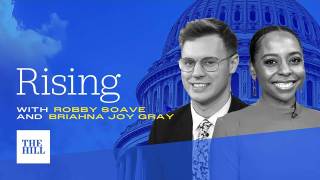Biden can limit colleges’ scheme to tack textbook costs onto tuition

For millions of college students like me, it is a rite of passage to shop around for textbooks at the beginning of every semester. As the cost of college textbooks has skyrocketed over the last two decades, many students have chosen to borrow, rent, or buy used textbooks. And many faculty have chosen to assign openly licensed materials that don’t cost students a dime.
But in recent years, “inclusive access” automatic textbook billing programs have been robbing students of their freedom to shop around and find free or lower-cost course materials. Although these programs are framed as reducing costs for students, they actually reduce our choices by automatically billing for digital course materials as part of tuition and fees, even if we could find the materials elsewhere at a lower price, or even for free. This leads to hidden fees, surprise charges, and less control over our money, including our critical student aid dollars.
As a first-generation college student who relies on federal student aid, I know from experience that every textbook expense that’s tacked onto my tuition bill siphons aid money that I could be using for essentials such as food and housing. What’s worse is that the publisher packaged the book with access to the online homework system, so I couldn’t even opt out. Rather than saving a bunch of money online, I had to let them funnel $100 of my student aid straight into the coffers of profit-hungry textbook companies just so I could turn in my homework.
A newer iteration of automatic textbook billing programs gaining ground on many campuses is called “equitable access.” In these programs, all students are billed a flat fee — typically hundreds of dollars per term — even if the actual materials we receive can cost a lot less than that. Despite the tagline, this model is the opposite of equitable. It is blind to the circumstances of students like myself, who have limited means and depend on the ability to shop around for lower-cost materials. It also cannibalizes the money students save, thanks to the growing number of instructors who assign open educational resources, which can be freely used and shared. The only thing more frustrating than getting automatically billed for textbooks is to pay for materials that you should have gotten for free.
As part of its push to get colleges to adopt more student-friendly policies, the Biden administration has proposed limiting colleges’ ability to tack the cost of books and supplies onto students’ tuition bills. This would helpfully curb “inclusive access” charges. The proposed change to Department of Education regulations would require colleges to receive authorization from students before billing us for textbooks and supplies, which is only fair.
Some proponents of automatic textbook billing will say that the “opt-in” model isn’t possible. But it’s already been succeeding for years on some campuses, such as the University of Central Florida. If “inclusive access” or “equitable access” truly offers benefits to students, then proponents have nothing to fear. If these programs offer real savings, we will rush to opt in — and if they don’t, we won’t and shouldn’t have to.
The Education Department’s proposed regulation is a small but critical step toward returning to students their right to choose how we use our money, including our federal student aid funds. It is an important step in ensuring a more affordable, open, and truly inclusive higher education that sets all students up for success.
Katie Wagman is a Textbook Affordability Fellow at Michelson 20MM, as well as a member of SPARC’s Student Advisory Committee. She is an undergraduate student at UCLA, studying public policy.
regular post copyright









